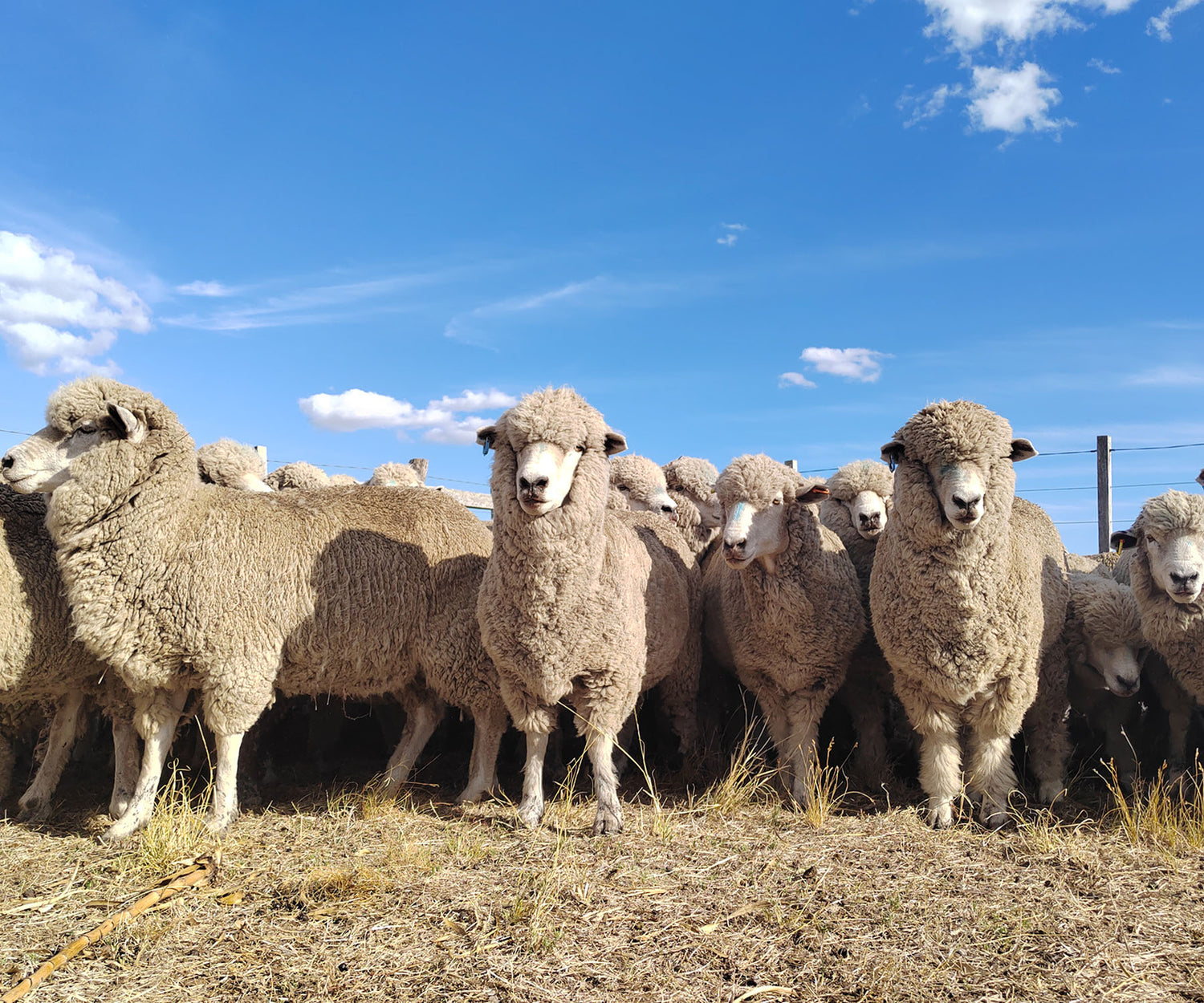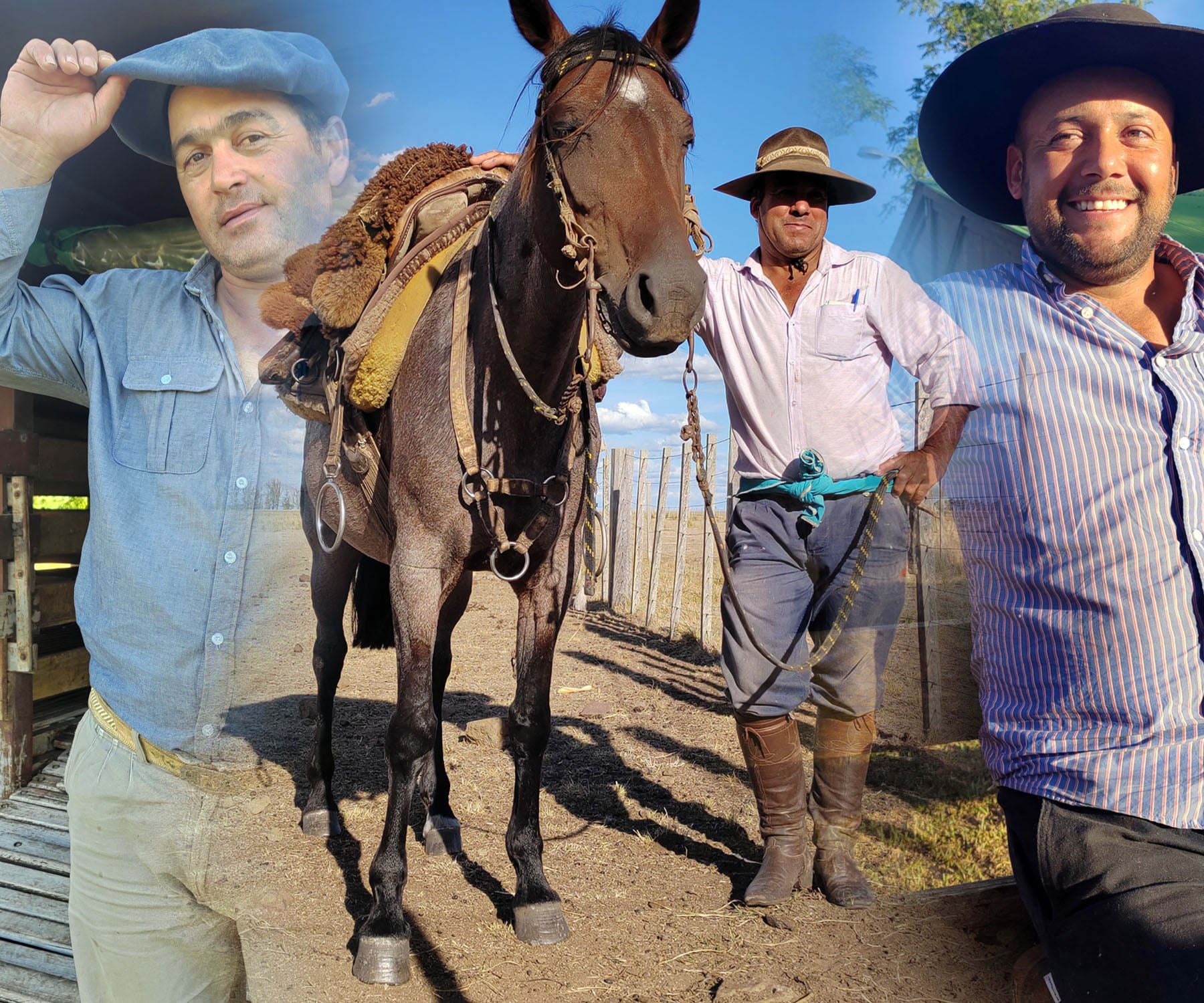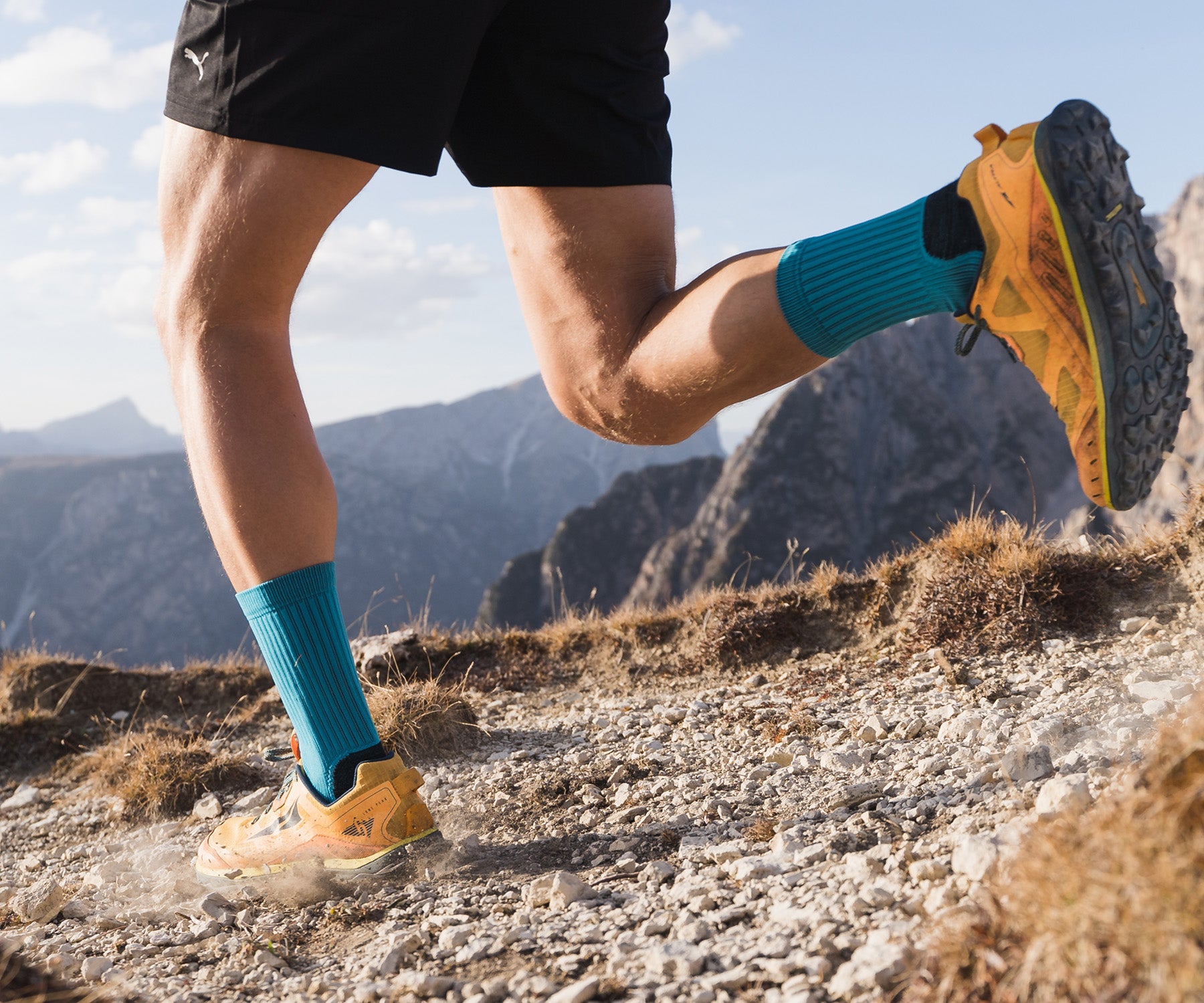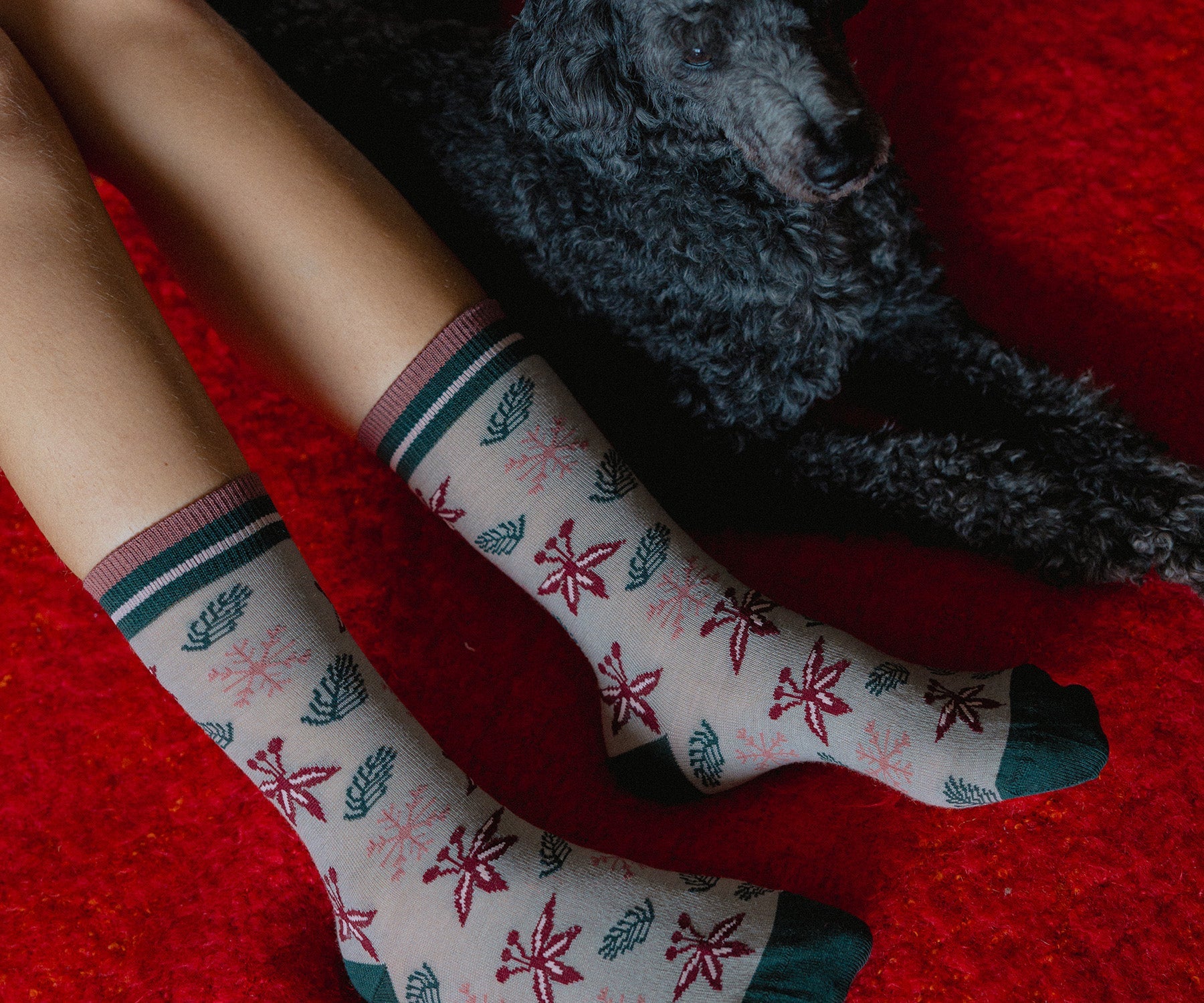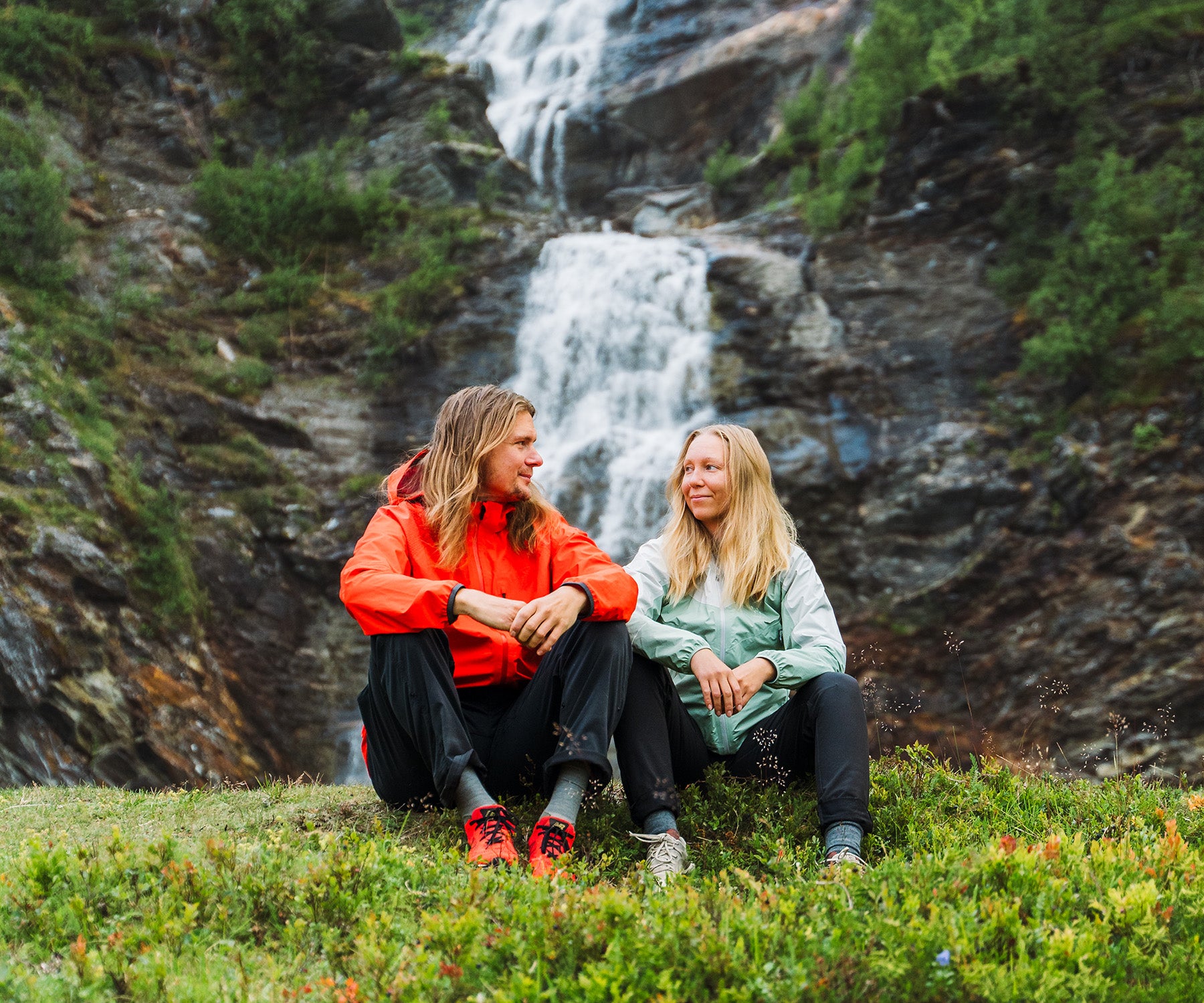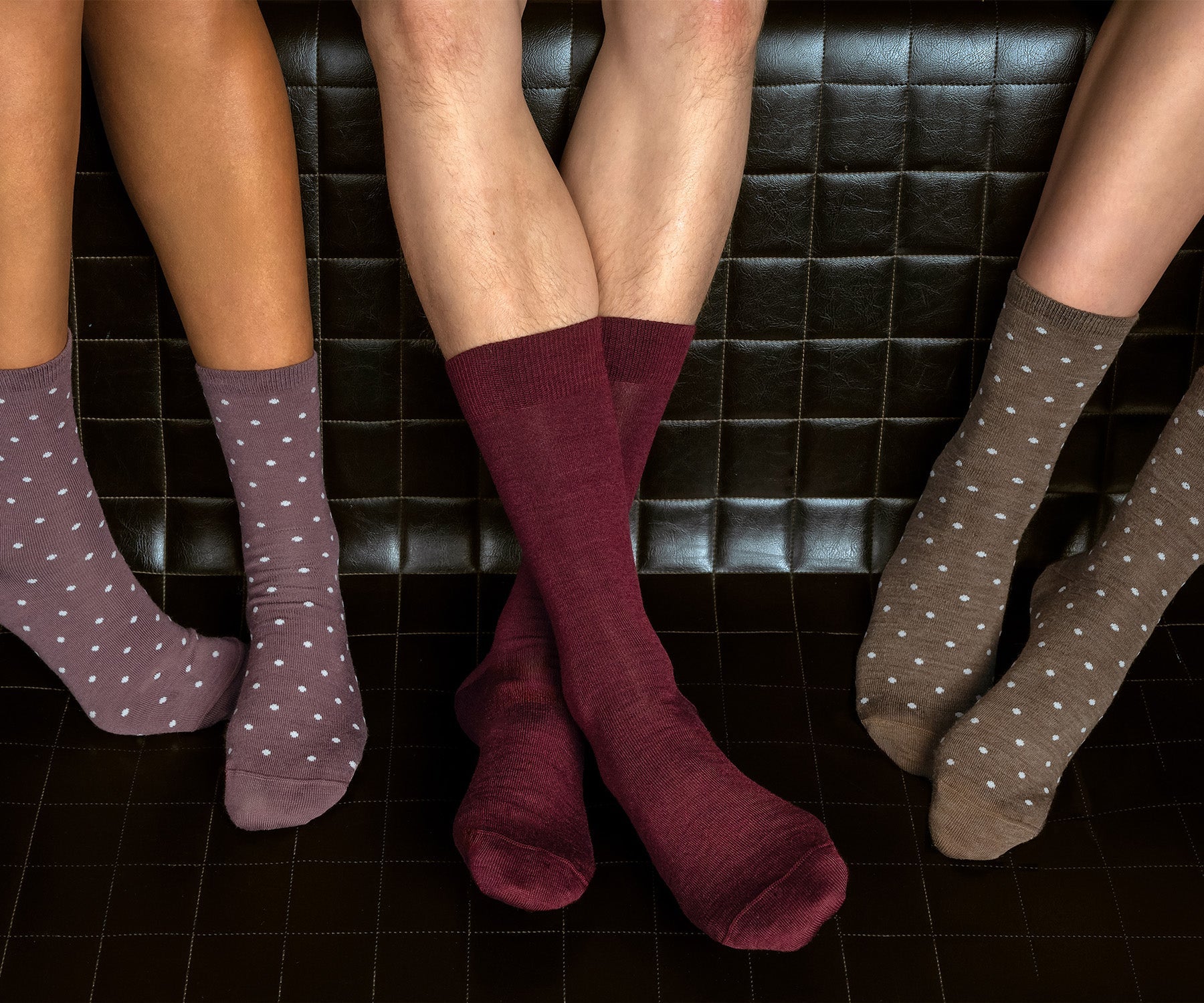Jump into the world of happy sheep!
Sukkamestarit is the world's first, and so far only, sock factory to use only NATIVA-certified merino wool in its products. NATIVA certification guarantees a production process that respects nature, animals and people in all parts of the chain. So how is NATIVA reflected in the daily lives of sheep?
The wool used by the sockmasters comes 100% from the La Magdalena farm in Salto, Uruguay. The farm is owned by Diego, a fourth generation farmer. For now, continuity on the farm is guaranteed, as Diego's children are keen to continue the farm when the time comes. We visited our farm in March 2023 to interview Diego and the farm workers.
La Magdalena has very high standards for workers, animals and land management.
Sheep rights and everyday life
In Diego's words, a sheep can only do well if its caretaker does well. Therefore, special attention is paid to the conditions of the workers to ensure the welfare of the animals.
It all starts with the basic rights of animals, which are:
- To live free and to adopt the behaviour typical of the species
- To live free from disrespectful treatment
- Live without pain and illness (including freedom from mulesing)
- Live without danger
- Access to nutritious food and refreshing drink
- To shade and cool.
The La Magdalena farm covers 74 000 hectares and has around 40 000 sheep. The farm's grazing land is divided into sectors to allow better and safer herding of herds (around 100-120 animals) and to guarantee basic rights for each of them. The herds graze freely, typically accompanied by one keeper and his horse, whose main task is to ensure that the basic needs of daily life are met and to protect the herd from wild animals (foxes). Sometimes there is also a dog in the team.
Protection from danger is especially important during lambing. Special shelters have therefore been built on the farm for baby lambs and ewes in labour. It also provides a peaceful environment for the ewe to be cared for, and the necessary human support and assistance to give the little life a good framework to establish itself as part of the larger flock.
It is also the responsibility of the animal keeper to ensure that the sheep have enough to eat and drink. The sheep are allowed to eat grass directly from the wild, which is typical of a browsing animal. In dry seasons (such as during our visit), supplementary feed was also brought to the pastures because of the scarcity of natural food. The animals drink rainwater collected in reservoirs and lakes, which is pumped to the watering areas using solar and wind power.

Photo. In addition, there may be a dog on the team. Working with animals is rewarding when the working conditions and equipment are right. Appreciation for animals is high.
Mulesing freedom
The right environmental conditions are important for sheep welfare. The environment should allow the sheep to follow its natural herd behaviour, which reduces stress and frustration for the animal. Sheep are herd animals that like to follow their conspecifics and herd. Herding provides security as well as warmth in colder weather.
The right environment also protects sheep from disease and parasites. Uruguay is a mulesing-free country. The underlying reason for this is the climate. The humidity and seasonal variations in the climate do not provide the parasitic fly with a suitable soil in which to live and breed, and so the parasite is not found in Uruguay.
Why not for moulins? In order to prevent parasite infestation, young sheep are mulesed by cutting away large areas of skin on both sides of the anus. The procedure is usually performed without anaesthesia and is painful and stressful for the sheep. The resulting scar tissue is claimed to reduce parasitic fly laying and myiasis caused by fly larvae.
Caring for sheep healthIn NATIVA, the freedom of the animal from pain, distress and unnecessary restriction of living space is very important. Therefore, there is a preventive care plan for the animals and the treatment is carried out in a planned manner with respect for the animal. Animals are also vaccinated to avoid disease. Great attention is paid to keeping hooves clean to prevent possible foot-and-mouth disease.
A cursory examination is carried out at the health inspection:
- mouth
- muzzles
- eyes
- ears
- skin.
In order to detect latent diseases or ailments in the animals as early as possible, sheep are given a light health check every week. This is also one of the reasons why flock sizes are kept small. In large flocks, health problems go unnoticed and, in the worst case, a contagious disease spreads to a large proportion of the animals before it can be detected. This also leads to a higher level of medication, which affects the quality of the wool.

Photo. A Gaucho and his horse are responsible for the welfare of the animals.
Shearing
Shearing is important for the welfare of the sheep, but also for the economy of the farm. The farm owner earns an income from the raw wool. The sockmasters account for around 15 000 sheep wool from the La Magdalena farm. One sheep produces about 4-5 kilos of wool per year. We currently buy about 50 000 kilos of raw wool per year.
The shearing is carried out by our own professionals, who do the job quickly and gently to make it as stress-free as possible for the sheep. It takes about 6 minutes to round up one sheep. Shearing is important for the well-being of the sheep. Wool is heavy and hot. At La Magdalena, shearing is done once a year just before the start of their summer, in October and November. This allows the sheep to bask in the summer with a lighter wool and to face the winter with a thicker wool. During the winter season in Uruguay, temperatures can drop to minus 2°C at night, but the general temperature is around +3-5°C.
After gathering, it is important to provide shelter for the sheep in case of cold weather.
Eviction of outdoor animalsThe Nativa protocol prohibits the dumping of animals in the form in which it is commonly known. Dipping involves immersing the entire animal in water containing a parasite-eliminating chemical. This helps to deter ticks, lice and flies, among other things. The procedure is intended to promote the animal's well-being from the discomfort caused by parasites.
According to Nativa protocol, parasite control should be carried out without causing stress or suffering to the animal. If necessary, parasite control is carried out using externally administered drugs.
Tail trimmingTail trimming of sheep is only carried out under NATIVA if it prevents health problems that would otherwise affect the sheep. It must be carried out within the first 24 hours after birth or by 8 weeks of age at the latest.
Care must be taken to ensure that the animal is not subjected to any stress or pain. Typically, the procedure is performed under anaesthesia or sedation.
The ultimate purpose of typing is to prevent problems with blood flow to the tail and dangerous infections. These situations arise when sheep lie on wet ground where moisture and mud and droppings accumulate around the tail and cause the above problems as they dry out.


